Pete Drummond is a boring dildo
Movie planned about AC/DC singer Bon Scott
vocalist died in 1980
Joe Bosso, Fri 5 Dec 2008
Nearly 30 years after his death, the wild life of AC/DC singer Bon Scott is on its way to the big screen.
The yet-to-be-titled movie is still in the early stages of development. Filmmaker Eddie Martin is still conducting research for the script, meeting with friends of Scott and the late singer's wife, Irene.
According to Undercover.com, Australian actor Tom Budge is the front-runner for the part of guitarist Angus Young, but Scott is yet to be cast.
Books about Scott said to be inaccurate
Through his research and conversations, Martin has learned that Scott's friends feel none of the many books written about AC/DC accurately reflect Scott's story. "Obviously we have gone through most of them, but talking to Bon's friends, they aren't happy with the books and feel they have been misrepresented," he says. "We want to go much deeper with the movie."
Martin says shooting for the film will likely begin within the next 18 months, but it will probably be three years or more before the movie is actually released.
One person Martin is especially eager to locate a former girlfriend of Scott who went by the nickname Silver. "She is definitely the one person we want to find," he says. "She was an Adelaide girl who lived with him in London after he broke up with Irene."
Singer died just as band was achieving success
Bon Scott was born in Scotland on 9 July 9 1946 and relocated with his family to Australia in 1952. He died in 1980, at age 33, after a night of heavy drinking. At the time of his death AC/DC's Highway to Hell was cracking the Top 20 in the US.
AC/DC's Vince Lovegrove recalls how he took on Bon Scott
From: The Advertiser November 21, 2008 11:30pm
Bon Scott was desperate for success, almost 28, and had not reached the fame and fortune he desired. The pressure was on and he felt trapped, frustrated, almost too old and without direction.
About 11pm on May 3, 1974, at the Old Lion Hotel in North Adelaide, during a rehearsal with the Mount Lofty Rangers, a very drunk, distressed and belligerent Bon Scott had a raging argument with a member of the band. Bon stormed out of the venue, threw a bottle of Jack Daniels on to the ground, then screamed off on his Suzuki 550 motorbike.
Three hours later, I received a phone call from his wife, Irene, at Queen Elizabeth Hospital. Bon was in a coma, near death, after a disastrous collision with a car.
I drove to the hospital, and there was Bon as I had never seen him; limp, smashed to smithereens, his jaw wired, most of his teeth knocked out, a broken collar bone, several cracked and broken ribs, deep cuts across his throat. He was in a coma for three days. He remained in hospital for 18 days.
This happened before Bon was to find fame with AC/DC. Irene tells me that, before Bon went into the coma that night, the nurse sarcastically said to her: "He says he's a singer."
* * *
My friendship with Bon Scott goes way back to 1966, when we were lads in Perth.
Ronald Belford "Bonnie" Scott was a 19-year-old Scottish migrant working as a postman in Fremantle and I was an 18-year-old sales assistant at Pellew's Menswear, which was conveniently situated just around the corner from the post office.
Ron, as his mother Isa still calls him, was the drummer in the Spektors and I was the singer with the Winztons, the top two teen bands in Perth.
Rhythm guitar player Ted Holoway and I decided to form a new band, the Valentines, comprising half the members from the Winztons and half from the Spektors. We wanted Bon in the band - as a second singer.
When he sang, Bon took off into charisma-land; his eyes would twinkle, his brows would slightly raise, his lips would purse into an impish grin, his swagger demanding attention. Bon had a raw, unique voice which would be perfect as an offset to my rather flimsy pop voice.
The Valentines became one of Australia's most popular bands of the '60s - I can even remember a young Jimmy Barnes in the audience when we played in Adelaide.
We were very poor, almost starving, driving down the highways, absorbed with rock'n'roll, stealing people's front door milk money to survive, living on boiled potatoes, the dreams of success our mantra.
We enjoyed a mad three years, the five of us, performing in every, single, poky hall and drug-infested club in tiny towns in every pocket of Australia. We slept in the van together, slumped over the equipment; we ate together, travelled together and were in each other's pockets almost 24 hours of every day - all for one and one for all.
But, as Bon so quaintly put it in the lyrics of one of his songs later on, "it ain't no fun waiting around to be a millionaire". We suffered near-malnutrition just to experience that hour or so on stage, our adrenalin-rush, audience-feedback addiction satisfied once more in a fix of rock'n'roll performance.
Our main charter wasn't to achieve the brilliance of musicianship but to live the life. We had a few run-ins with the law; our charter was sex, drugs and rock'n'roll. I say this as a matter of fact, not a matter of pride.
When the Valentines split in 1970, we all went our separate ways. I moved to Adelaide to work on a magazine. Bon went to Sydney and joined the Levi Smith Clefs, which then changed its name to Fraternity.
In the summer of 1971, thanks, in part, to the generous spirit and blind-faith-belief of Adelaide entrepreneur Hamish Henry, Fraternity moved from Sydney to Adelaide, where they lived a seemingly idyllic communal lifestyle on a 3.5ha property 26km from the city, in Aldgate.
Fraternity were excellent musicians led by bassist Bruce Howe, who was a dogmatic taskmaster, and he weaved his mentor magic on Bon Scott.
A few months into 1972, Fraternity left Australia for England, Bon marrying his beautiful, blonde girlfriend, Irene Thornton, before departure.
Less than two years after leaving to crack the big time in Europe, Fraternity crawled back into Adelaide, their tails between their legs, the big time having eluded them. Bon and Irene landed in Perth on their way home to Adelaide on December 28, 1973. Bon didn't waste any time. He had a strong work ethic, and after returning to his adopted home of Adelaide he immediately began earning money doing any kind of work. He scraped barnacles from the bottom of boats and he worked at the Wallaroo fertiliser plant.
Musician Peter Head, former leader of Adelaide's Headband and a virtuoso piano player, befriended Bon. Bon would go to Peter's home after a day shovelling shit, and show him musical ideas he had had during his day's work. Bon's knowledge of the guitar was limited, so Peter began teaching him how to bridge chords and construct a song.
One of the songs from these sessions was a beautiful ballad called Clarissa, about a local Adelaide working girl. Another was the country-tinged Up in the Hills Too Long, which for me was a sign of things to come with Bon's lyrics; simple, clever, sardonic, tongue-in-cheek. Bon always carried a standard, spiral-bound, exercise book in which he wrote words and rhymes. That habit stayed with him until the day he died.
Head had a make-shift band, the Mount Lofty Rangers, for out-of-work musicians, and Bon was one of the many drifting lead singers. Another was Glen Shorrock and another was Adelaide theatre legend Robyn Archer. Bon left the Mount Lofty Rangers after his accident.
When he was released from hospital, Bon stayed alternatively at Irene's home and my home, which I shared with my wife, Helen.
We owned a booking and management agency called Jovan, and we managed a fledgling Cold Chisel and a group called Stars. We booked into Adelaide most major Australian acts, such as Lobby Loyde, Kevin Borich, Skyhooks, Chain, and Buster Brown, with Angry Anderson on vocals.
There was a young, dinky little glam band from Sydney that we both loved called AC/DC. Leaders of the band were brothers Angus and Malcolm Young. I knew their big brother, George, from the old Valentines days. George and his former Easybeats colleague Harry Vanda wrote us a few songs, and Bon idolised that group's singer, Stevie Wright.
Malcolm, then 21, and Angus, just 19, were impatient fireballs, hungry for live performance experience and success. Helen and I loved the young AC/DC with their satin, knee-length pantaloons and school uniform.
Bon was now recovering from his motorbike accident. He was hobbling around on crutches, sometimes a walking stick, and was earning money by helping Helen and I paint the office, placing posters and other assorted promotion jobs.
Before another AC/DC visit, George Young phoned me and said the band was looking for a new singer. I immediately told him that the best guy for the job was Bon. George responded by saying Bon's accident would not allow him to perform, and that maybe he was too old.
Nevertheless I had a meeting with Malcolm and Angus, and suggested Bon as their new singer. They asked me to bring him out to the Pooraka Hotel that night, and to come backstage after the show.
When he watched the band, Bon was impressed, and he immediately wanted to join them, but thought they may be a bit too inexperienced and too young.
After the show, backstage, Bon expressed his doubts about them being "able to rock". The two Young brothers told Bon he was "too old to rock".
The upshot was that they had a jam session that night in the home of Bon's former mentor, Bruce Howe, and at the end of the session, at dawn, it was obvious that AC/DC had found a new singer. And Bon had found a new band.
* * *
Bon and I kept in touch over the years and I last saw him in 1978 in Atlanta, Georgia. I was filming a documentary about Australian music and AC/DC were headlining a concert. The group had been touring America and Europe non-stop for almost three years at that stage, and they were getting close to breaking through internationally, but that was still 18 months away.
After the show, Bon and I went back to his hotel, the Peachtree Plaza Hotel.
My old singing mate and I had our first heart-to-heart conversation for about 18 months. He told me he was tired of it all, that he hoped the band "cracks it soon". He said they were nearly there, that he could smell the success, but if they didn't make it in the next year or two, he would leave the band. He said there still wasn't much money, that he was still broke. He told me he would come back to Australia if it didn't happen soon for AC/DC. He told others he would stay in America. I am sure he told different people a different story. But he was certainly lonely.
There was unquestionably an undercurrent of resigned sadness behind his impish grin. He was 32 years old.
Less than two years later, on February 19, 1980, Bon Scott was found dead, alone, slumped in a Renault car in south London.
He had drunk himself to death, according to the coroner's report. A very lonely death. Those of us in Australia who knew Bon well, those of us who had known him since the '60s, could not quite comprehend how, on the edge of international success, he could die alone in a car, parked in a lonely London street, in the middle of winter, with not a friend in sight.
was Mark Bolan ever this good?
Bon Scott - semi-rigid
they make it look so damn easy
Ronald Belford Scott (July 9, 1946 – February 19, 1980), better known as Bon Scott
He was born in Kirriemuir, Scotland; his family relocated to Perth, Australia in 1952.
By 1970 Scott had already enjoyed some limited success in 1960s rock and roll groups The Spectors and The Valentines, as a singer and sometimes as a drummer as well. Both acts started in Perth, far away from the Australian music industry centres of Sydney and Melbourne. The Valentines toured Australia and also recorded songs by Harry Vanda and George Young of The Easybeats.
Scott later joined an Adelaide-based progressive rock band named Fraternity, and they were starting to get big-time. Soon, though, the band started to fall apart. In 1973, just after returning home from a tour of England, the band went into a sort of suspended animation. Bon Scott started playing for a little bit with a band called Peter Head's Mount Lofty Rangers. It was after leaving a rehearsal with them that Scott got into a motorcycle accident and was seriously injured. Fraternity ended up reforming, but Scott decided he wouldn't stay with them. They never achieved the kind of success Scott would enjoy with his next band.
The following year, while doing odd jobs for a man involved in the Adelaide music scene, Scott first met the members of AC/DC, when they passed through on tour. The band was driven by the brothers Angus and Malcolm Young, younger siblings of Scott's friend George Young. Scott was impressed by the band's energy and drive, and the naive bandmates were, in turn, quite taken with the experienced frontman. When AC/DC fired singer Dave Evans a few months later, Scott replaced him.
Known for his heavy drinking binges, Scott was found dead in 1980 in a friend's car, parked outside the friend's South London apartment. The official coroner's report stated "death by misadventure" and found that he had asphyixiated on his own vomit after his neck twisted in the night. At the time of his death, the international press made false accusations about a drug overdose. No traces of illicit substances were found in his system by the coroner. Recent investigations point to a possible cover up on Scott's "Friend's" behalf, and whether or not the circumstances leading to Scott's death were fully accidental.
Scott is buried in Fremantle Cemetery's Memorial Garden in Australia, in the town where he grew up.
God's own imp












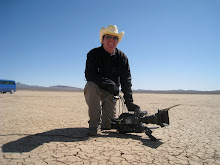


























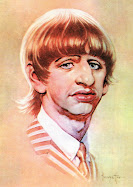






















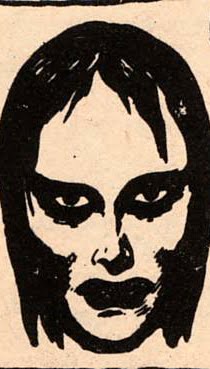









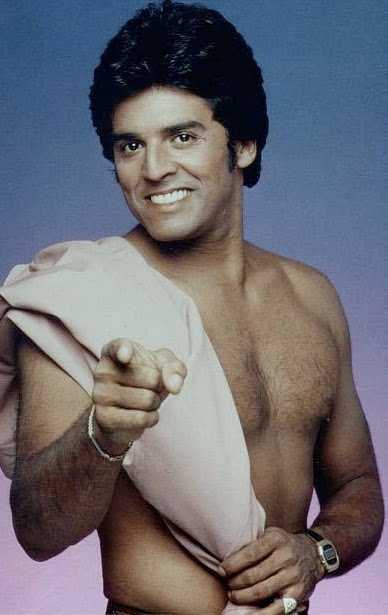









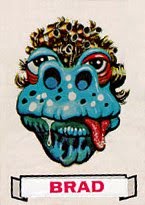























































No comments:
Post a Comment